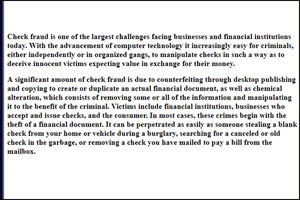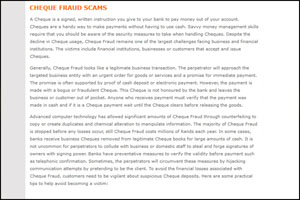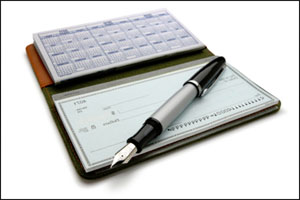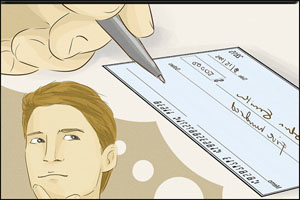Cheque Scams
Cheque-related scams are on the rise, with people across the globe receiving emails from various fraudsters involved in these schemes. These messages often appear highly professional and convincing, with content designed to seem legitimate and trustworthy. In a recent incident, an individual received a £3,500 cheque from Lloyds TSB, allegedly issued by a company named Portolio Metrica Ltd., which claimed to be based in West Africa. The recipient was shocked, as he had no prior dealings with the company or any account with the bank. The cheque appeared authentic, but out of caution and confusion, he decided not to deposit it and instead kept it safely at home without taking any further steps.
cheque scams involve fraudulent schemes in which individuals receive a fake or counterfeit cheque, often through the mail, and are then instructed to deposit it into their bank accounts. The scammer typically urges the victim to a portion of the funds back, often citing various reasons such as overpayment, taxes, or fees. However, the deposited cheque eventually bounces, leaving the victim responsible for the entire amount, and any money sent to the scammer is irrecoverable. To avoid falling victim to cheque scams, individuals should exercise caution when receiving unexpected cheques, especially from unknown sources. Verify the legitimacy of the cheque with the issuing bank, be skeptical of overpayment requests, and refrain from sending money to unfamiliar entities based on such cheques.
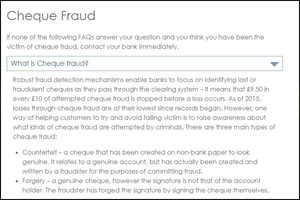
Scams related to business cheque :

- Should never reply to emails from scammers
- Should not provide any personal and financial information, even when the scammer gives pressure
- Should keep cheque books in a very secure place
- Should never accept cheques from third parties or any strangers
- Should always check the credentials and the authenticity of the people offering a cheque
- Back ground verification of the cheque issuer is a must
- Should never offer or accept cheques from third party
- Should escalate the matter to the concerned authorities
- Should dispatch the goods only after the deposit amount is fully cleared
- Should always reconcile bank accounts regularly
These are only basic cheques, and there are many more precautions businessmen should follow before parting with their goods. Scams related to traveler’s cheques and certified cheques are also doing the rounds worldwide. Scammers have tried to lure the people of York recently into an international money laundering ring. Some of the people living in York replied and received a "fake traveler’s cheque worth £3,000" from the scammers, which was later investigated by the police and found to be fraudulent. North Yorkshire Police consider these types of frauds to be complex international frauds and an attempt to swindle innocent people's money. There are other types of sophisticated scams such as deposit fraud, cheque cashing scams, online scams, and so on.
Business cheque scams involve fraudulent activities where scammers exploit business cheques for financial gain. One common scheme involves scammers creating fake invoices or bills that appear to be from legitimate vendors and mailing them to businesses. These invoices often include details that closely mimic real transactions, tricking businesses into making payments. Another scenario involves scammers posing as potential clients or customers who pay with fraudulent business cheques—often overpaying and then requesting a refund of the excess amount. By the time the bank identifies the cheque as fake, the scammers have already disappeared with the refunded funds. To avoid falling victim to business cheque scams, companies should verify the authenticity of invoices, carefully review payment requests, and avoid refunding overpayments without proper verification. Regular monitoring and reconciliation of financial transactions can also help detect suspicious activity early.
